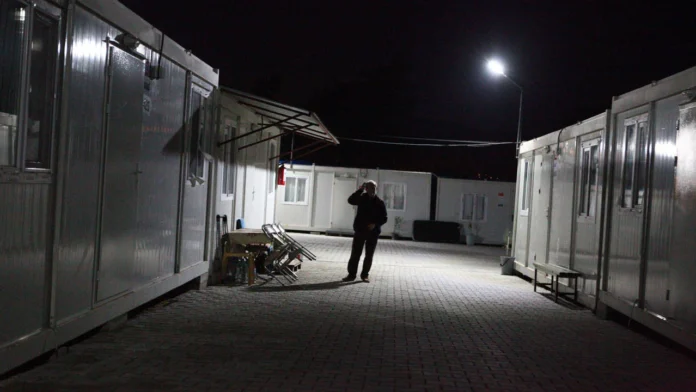Two years after devastating earthquakes struck Turkey’s southern and southeastern provinces, authorities have failed to implement effective and transparent policies to address victims’ housing needs, according to urban planners.
The post-earthquake reconstruction has been jointly led by the Ministry of Environment, Urbanization and Climate Change, the Housing Development Administration (TOKİ), the Urban Transformation Directorate and the state-owned ILBANK. Part of the reconstruction entailed setting up entirely new neighborhoods to address the housing needs of victims. Urban planning experts warned that this was a delicate topic that needed to be deliberated with local authorities because it meant land belonging to private individuals would be ceded to government control.
Speaking to Deutsche Welle’s Turkish service (DW), urban planner Ceyhan Çılğın criticized the authorities’ handling of the housing crisis. “The government was quick to begin putting up new buildings; however, in the process, it expropriated private property. We don’t know the exact circumstances under which these properties were taken for construction, and the owners were not properly informed of the details,” he said. “In some cases, private land was confiscated by the government, and the owners didn’t even know construction was underway on their property.”
The magnitude 7.8 and 7.5 earthquakes struck 11 provinces in southern and southeastern Turkey on February 6, 2023, killing 53,725 people, injuring more than 107,000 and leaving millions homeless when thousands of buildings collapsed. Poor construction and a failure to enforce building codes even in Turkey’s earthquake-prone areas have been blamed for the extent of the destruction.
According to Çılğın, these institutions have failed to properly inform local administrations of the details of construction projects as well as which completed properties have been handed over to residents.
“According to regulations, the ministry is obligated to inform local authorities about any construction work and property distribution. However, what we’re witnessing is a construction frenzy lacking proper planning. This will no doubt lead to different crises and disasters in the future,” Çılğın said.
Sinem Kolgu, chairperson of the Istanbul branch of the Chamber of Civil Engineers, addressed ongoing transparency issues. “There is a lack of clarity regarding the number of buildings demolished due to severe earthquake damage, how many are being repaired, and the details of new construction projects,” she said. “Furthermore, we don’t know if the ministry is mindful about preserving historic sites and cultural heritage landmarks.”
Lawyer Ecevit Alkan from the Hatay Bar Association said the reconstruction process had damaged agricultural land and nature reserves. “Major construction has been underway since the earthquakes, and due to bad planning we’re seeing that the environment has been harmed. Groundwater reserves in particular have been depleted,” Alkan said.
In addition to bad planning and a lack of transparency, experts argue that once again, construction companies are not properly inspected. “We have no idea what kind of material they’re using in construction and whether the buildings will withstand a future earthquake. These companies are free to choose which materials they work with, and this means they could very well be using poor quality construction material,” Çılğın said.
While thousands of people were displaced in the aftermath of the earthquake, the current problem is that these people will be put in low-quality housing without proper infrastructure. Unfortunately, these people do not have the option to say they don’t want to live in these new houses and residential areas because they are in dire need of housing.
The experts pointed out that although extensive construction is underway, the number of houses built and handed over to victims is only a fraction of what President Recep Tayyip Erdoğan promised.
Despite the two years that have passed since the earthquakes, media reports show that many earthquake victims still live in tents despite harsh weather conditions and have difficulty accessing basic needs such as clean water.















